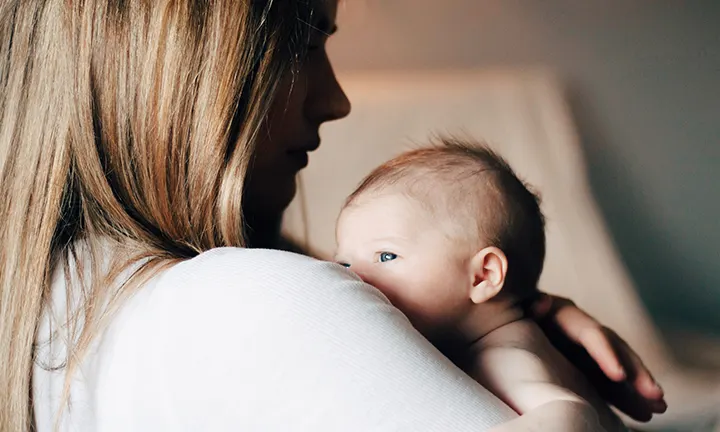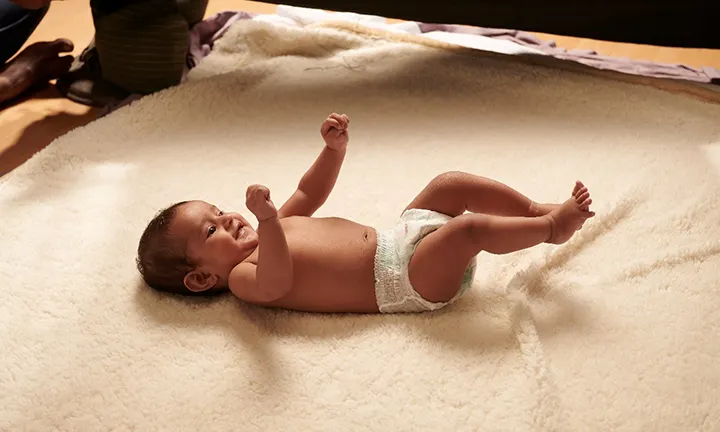Learn How to Burp Your Baby: How Often, Tips and Positions
A key part of your baby's feeding routine is burping them. Your baby may swallow lots of air while feeding, and burping can help remove some of that gassiness and ease fussiness. It may also help prevent them from spitting up.
Find out how to burp a newborn, and pick up some tips on making burping more effective.
How to Burp Your Baby: Positions to Try
Here are three burping techniques that have stood the test of time. After trying each of them out, you’ll probably settle on one that works best for you and your baby:
Hold your baby upright against your chest with their chin on your shoulder, all the while supporting them with one hand as you gently pat their back with your other hand.
Place your baby on your lap with them sitting up, all the while supporting their head and chest with one hand while you softly pat their back with your other hand.
Lay your baby on your lap with their belly faced down, all the while supporting their head so it’s higher than their chest and pat their back.
Tips for Burping Your Baby
Try these tips the next time you need to burp your baby:
Use repeated, gentle pats on her back.
Cup your hand slightly as you pat her, as this is gentler than using a flattened palm.
Drape a towel or bib over your lap or shoulder to protect your clothing as you burp your baby, in case your baby spits up (sometimes called “wet burps”).
Now that you know more about burping a newborn, and these tips help you do so effectively, here’s a helpful visual guide:

How Long Should You Burp Your Baby?
When it comes to how long to burp a baby, there's no set amount of time you need to do it. The more important factor is how often you burp them. With that in mind, burp your baby frequently throughout feeds, even when it looks like they don’t need to be burped.
Waiting until after a feeding to burp your baby may mean your little one has swallowed too much air and may be fussier, so it’s better to stop feeding every so often and try to burp your little one.
Here are some tips for burping your baby during a feeding:
If you’re bottle feeding (which can include formula feeding or offering expressed breast milk), you’ll want to burp them after every two to three ounces of milk.
If you’re breastfeeding, burp your baby each time he switches breasts. Some breastfed babies may not need to burp as often, as they may not swallow as much air.
If your baby hasn’t burped after some time, go back to feeding. Not every baby burps every time you want them to burp.
If your baby shows any of the following signs, you may want to burp them more regularly — for example, after every ounce of milk during bottle-feeding or every five minutes during breastfeeding:
They are gassy
They spit up frequently
They have Gastroesophageal Reflux Disease (GERD)
They seem very fussy.
After a feeding is over, keep your baby in an upright position for 10 to 15 minutes. This can help prevent them from spitting up. You may need to consider how long to burp your newborn if they do spit up or have been diagnosed with GERD.
Other Instances When Burping Your Baby Might Be Beneficial
If your sleeping baby wakes suddenly and you suspect it may be because of gas, burping her might help relieve the pressure and help her fall back asleep.
A colicky baby, who may cry for three or more hours per day, might have gas from all the air she’s swallowed during one of these crying spells. You may consider burping your newborn to see if it helps comfort her.
FAQS AT A GLANCE
Focus on effective burps rather than speed by burping your baby frequently and using different positions: upright against your chest, sitting on your lap with head support, or belly-down on your lap with their head elevated—all while gently patting their back for comfort.
We hope these tips can help you burp your baby during feeding time to ensure their more comfortable.Don’t forget to stock up on plenty of diapers, which you will surely need after all these feedings and burpings. Earn points for all your purchases by using the Pampers Rewards App and use all your points to get rewards like coupons, toys, and gift cards.




